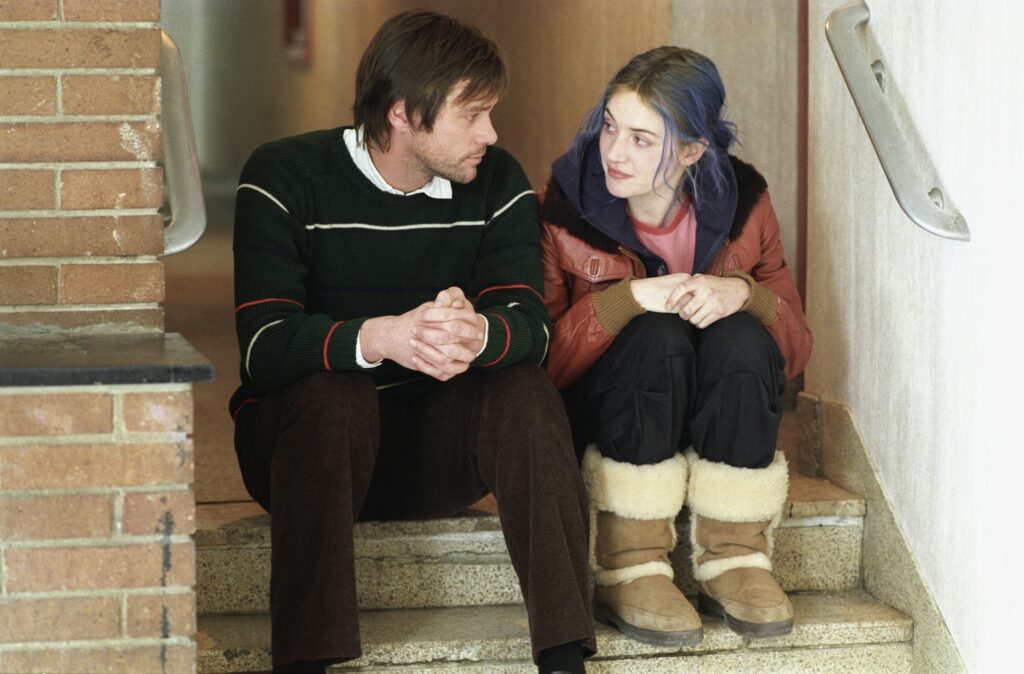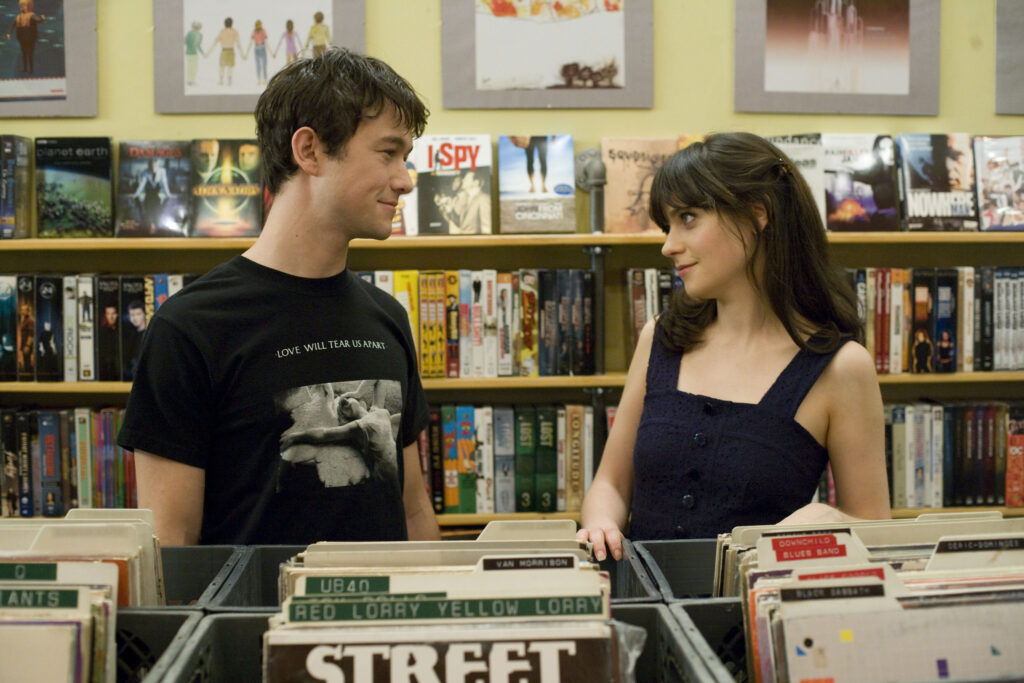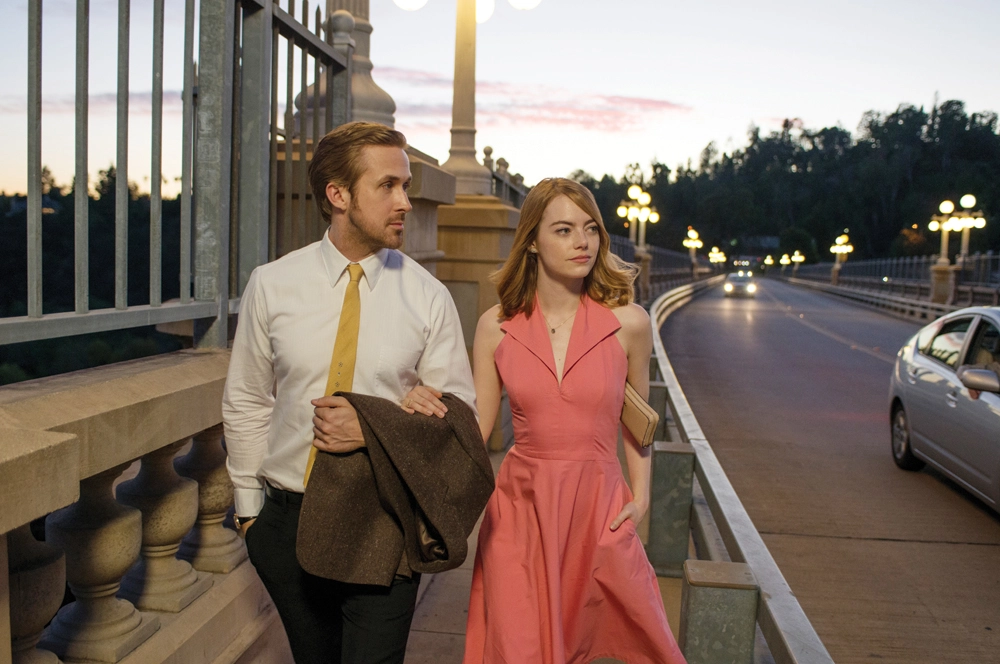Blog: The Appeal of the Anti-Romcom


This is not a blanket critique of delightfully saccharine love stories: I’ll always be enthusiastic to spend a Friday night rewatching classics like Notting Hill or 10 Things I Hate About You. However, movies that present a more bittersweet, nuanced, and complex portrait of love are much trickier to conceptualize, but they’re more thought-provoking and poignant than any lighthearted rom-com. In this post, I’ll review three of my favorite films that fit in the category of cinema I’ve affectionally dubbed “anti rom-coms.”
Note: Subtle spoilers for all the movies mentioned below!

Rom-coms are always about the thrilling beginning of a relationship rather than its possibly disastrous conclusion. Eternal Sunshine depicts the piercing, all-encompassing pain of fresh heartbreak in a way that is palpable and gut-wrenching. It’s a film about memory, grief, the cyclical nature of human behavior, and the irreplaceable value of the past. The story revolves around Joel (Jim Carrey) and Clementine (Kate Winslet), a couple who decide to have their memories of each other erased after a painful breakup. As he’s undergoing the amnesia-inducing procedure, Joel reflects on the course of his relationship with Clementine.
The heartbroken person, sitting on a couch littered with used tissues and half-eaten takeout, often exclaims frustratedly, “I wish I never met them.” Eternal Sunshine takes this concept and shows viewers exactly what would happen if this wish were fulfilled. The movie presents a remarkably realistic, balanced portrayal of a modern relationship. There are breathless, exhilarating memories of taking midnight trips to the river and going stargazing, but there are also fights over nonsensical causes and tense Valentine’s Day dinners. In the end, the question that begs to be answered is: Are people always worth remembering, even when they cause us intense pain? Eternal Sunshine addresses the topic in a way I, for one, will always remember.

On a prosaic, dull day at work, Tom (Joseph Gordon-Levitt) looks up from his desk and locks eyes with the new receptionist, Summer (Zooey Deschanel). He instantly falls hopelessly, irrevocably in love with her. She’s not looking for a serious relationship, yet Tom still eagerly pursues her, and their priorities clash.
The movie examines the dangers of becoming infatuated with the airbrushed idea of someone and dwelling on unrealistic fantasies. Tom sees Summer as a perfect, dreamy “cool girl” type, but he never really looks past this persona to the actual, flawed human beneath. As a result, he romanticizes her to devastating effects on his emotional wellbeing. In my opinion, the movie is worth watching solely for its expectations vs reality scene, during which Tom goes to a party at Summer’s apartment. His ideal version of the evening is juxtaposed with what actually happens. I think many people can relate to going to an event solely to see a person they have a crush on, meticulously constructing a scene in their head in which their crush flirts with them all night, and then showing up and being completely ignored by that prized person. It’s a quietly ruinous kind of hurt that the movie displays with a touch of honesty and empathy that made me suck in my breath.
500 Days of Summer shows that both parties in a relationship can be at fault. A common temptation is to cast all the blame on one person: It’s easier to absolve yourself if you see the other person as a villain. If you believe you were the better person in the relationship, no lingering miasma of guilt plagues you after the breakup. However, since all humans are imperfect, it’s simply unrealistic to subscribe to the idea that one individual was completely blameless. The movie clearly shows how both Tom and Summer can be emotionally manipulative and struggle with communication issues and unrealistic expectations. The viewer is challenged to have a more unbiased perspective about past relationships and confront the fact that bias and hindsight always glorify or demonize reality.

La La Land received fourteen Oscar nominations for a reason. It’s a joyous, hazy, touching story about the creative process, the meaning of art, and the people who help us achieve our ambitions. Mia (Emma Stone) and Sebastian (Ryan Gosling) are both aspiring artists chasing their dreams in LA. During their relationship, they inspire and understand each other in a way that only fellow creative souls can. Their dynamic is simply lovely. It’s fragile and hopeful at the beginning, and then evolves into something vibrant and complex as the seasons change. No matter how often their surrounding circumstances fluctuate, Mia and Sebastian consistently, genuinely see and care about each other.
La La Land is a movie about dreams. Is a dream a person? A career? If you have to give one of these up to keep the other, which one do you choose, and how do you live with yourself after it’s all over? I don’t think La La Land attempts to offer universal answers, but it honestly depicts the situation of two people who find themselves faced with such dilemmas and invites the viewer to ruminate on their choices. Yet the movie is entirely certain about one idea: Just because something ends doesn’t mean it’s not meaningful. People come and go, but even if they’re not in our present, that doesn’t negate the fact that they had a vast impact on us, and perhaps a part of us will always care for them. It’s a wonderful, magical blessing that we get to love others and change their lives in resounding ways that echo sweetly even after we’re gone.
When you’re feeling particularly pensive or introspective, I highly suggest you take the time to watch one of these movies. They’ve been instrumental in my perspective on romance, and I hope they can be thought-provoking for you too. Love is complex. These stories acknowledge and embrace love in all its messiness, brokenness, allure, and transcendence.
Related Post: Blog: Why We Think What We Think About Love
